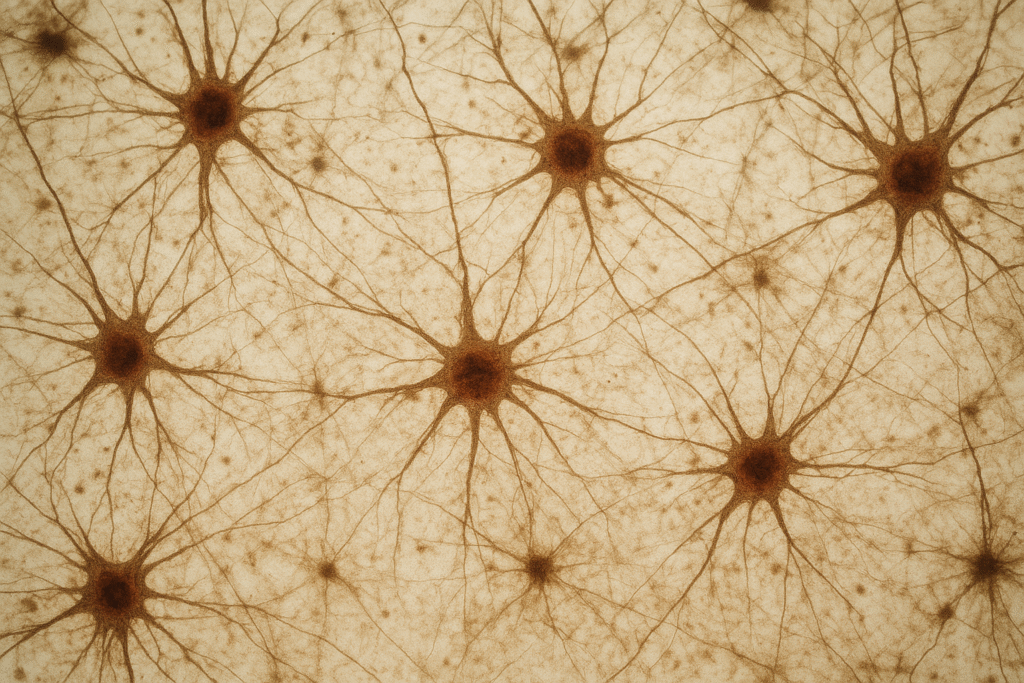By Harshit | October 18, 2025 | Wako, Japan | 4:00 JST
A new study published in Nature has revealed that astrocytes—star-shaped cells in the brain long thought to only support neurons—play a pivotal role in stabilizing memories, particularly those linked to emotional events. The findings could have profound implications for understanding memory disorders such as post-traumatic stress disorder (PTSD) and Alzheimer’s disease.
Beyond Support: Astrocytes Take Center Stage
Astrocytes were traditionally considered helper cells, providing structural and metabolic support to neurons. However, the research team at RIKEN Center for Brain Science in Wako, Japan, discovered that these cells do far more than previously imagined. They actively participate in memory stabilization and can be triggered by repeated emotional experiences.
“We provide an answer to the question of how a specific memory is stored for the long term,” said Jun Nagai, neuroscientist and co-author of the study. “By examining astrocytes, we can see how the brain selectively filters and preserves important memories at a cellular level.”
From Short-Term to Long-Term: The Mechanics of Memory
Memory formation is a complex process involving multiple brain regions, including the hippocampus and amygdala. While neurons create physical traces of memories, called engrams, how these traces are consolidated into long-term memory remained unclear. Nagai and his colleagues focused on memory stabilization—how a fleeting memory becomes enduring over time.
The team developed a method to track activation patterns in astrocytes across the entire brain of mice engaged in a memory task. They monitored the expression of a gene called Fos, an early marker of cell activity linked to memory traces.
Fear Conditioning and Astrocyte Activation
To explore how astrocytes contribute to memory recall, researchers used a well-established fear-conditioning task. Mice were placed in a cage where they experienced mild, unpleasant foot shocks, forming a short-term fear memory. When the mice were reintroduced to the same cage days later, they displayed a strong fear response, indicating memory recall.
Interestingly, Fos upregulation was observed primarily in astrocytes during the recall phase, not during the initial learning. This suggested that astrocytes are more critical for retrieving established memories than for forming new ones.
“The surprise was that astrocytes did not respond to the fear experience the first time, only the second time,” Nagai said. “This indicates their role is in stabilizing memories after repeated exposure, rather than initial encoding.”
Implications for Memory Disorders
The discovery sheds light on the cellular mechanisms behind emotional memory retention, which could open new avenues for treating memory-related conditions. Disorders such as PTSD, characterized by persistent recall of traumatic events, might be linked to astrocyte activity. Similarly, neurodegenerative diseases like Alzheimer’s, where memory retrieval deteriorates, could potentially benefit from therapies targeting astrocytes.
Experts believe that understanding astrocytes’ involvement in memory consolidation could lead to treatments that enhance or suppress specific memory traces. Such precision could help mitigate unwanted traumatic memories while supporting healthy cognitive function.
Future Research Directions
Nagai and his team aim to further investigate how astrocytes interact with neuronal networks during both positive and negative emotional experiences. By mapping these interactions, scientists hope to identify the molecular pathways that govern memory stabilization and longevity.
“The study is just the beginning,” Nagai emphasized. “Astrocytes appear to be more than supporting actors—they are integral to how our brains select and preserve meaningful experiences. Understanding them fully could revolutionize our approach to cognitive health.”
Conclusion
This research highlights a paradigm shift in neuroscience, recognizing astrocytes as active participants in memory formation and recall. By unraveling how these cells stabilize emotional memories, scientists can explore new strategies for treating disorders where memory processing goes awry. As research continues, astrocytes may hold the key to unlocking the secrets of the human mind’s ability to remember and learn from emotionally charged experiences.

